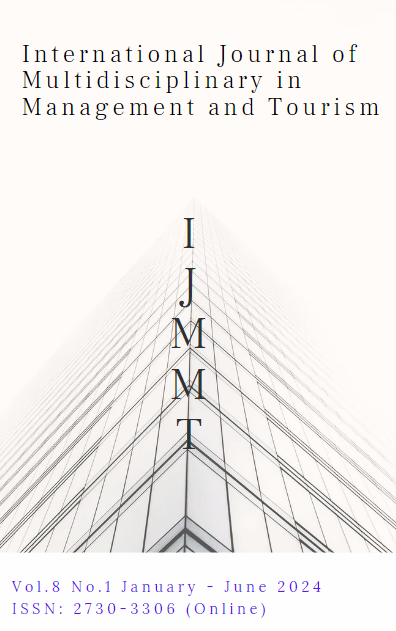Changes in Identity and Management Models of The Ecological Village of Yingshui Dong Ethnic Village in Longsheng, China
Main Article Content
Abstract
The ecological village of 'Tongqing Shuixiang' in Longsheng County, Guangxi Province, China, is a typical representative of the landscape of Dong ethnic villages in Longsheng. The environmental characteristics and climatic conditions of Longsheng area, which are mountainous, forested and rainy, have formed a water town terrace landscape that reflects each other with "mountains, green forests, terraces, and villages". In April 2018, at the fifth global important agricultural culture international forum, Longsheng area was awarded the title of "Global Important Agricultural Cultural Heritage". This study takes the ecological village of Yingshui Dong Village in Longsheng, China as its starting point, and uses various methods such as literature research, field investigation, case study and interdisciplinary research to study the challenges and opportunities faced by the Dong ethnic ecological village and its traditional cultural arts under the impact of modern science and technology and economic and cultural development; it studies the effective measures taken by the state, local governments and villages to cope with the development dilemma, including how to protect and inherit intangible cultural heritage; how to scientifically construct and manage ecological villages, realize the cooperation and co-construction of "school-museum-village" and interdisciplinary research and management; how to strive to create and build a cultural space model of ecological village of Dongqing Water Town that links the development of "static spatial landscape culture" and "dynamic custom culture". These measures provide reference and theoretical basis for cooperatively creating a national characteristic spatial cultural management system and promoting the political, economic, cultural and tourism development of ethnic regions.
Article Details

This work is licensed under a Creative Commons Attribution-NonCommercial-NoDerivatives 4.0 International License.
References
Bao, Z., Tan, & Wang. (2021, October). Genetic characteristics of cultural landscape in Southern China's rice terraced agricultural heritage sites—A case study of Longji terraced fields in Longsheng County. Guangxi: Social Scientist.
Bao, Z., Tan, & Wang. (2021, October). Cultural landscape genetic characteristics of rice terraces agricultural heritage sites in Southern China: A case study of Longji terraced fields in Longsheng County. Guangxi: Social Scientist.
Deng, Y. (2020, February). Study on influencing factors of cultural space for rural tourism in ethnic areas—A case study of Dazhai village in Longsheng County, Guangxi. Journal of Hubei Vocational Technical College, 127-128.
Dong Ethnic Culture: 360 Library. (2021, March 19). [Cited on March 19th, 2021].
Luo. (2018, June). Research on control and protection of traditional minority villages' architectural landscape—A case study of Pingdeng Dong village in Longsheng County, Guangxi. Tourism Review (Industry Edition), 90.
Longsheng Ethnic Groups and Folk Customs: An Overview of Longsheng Ethnic Groups and History. (2023, November 23). Longsheng Autonomous County of Guilin City, Guangxi People's Government Portal Website. [Accessed on November 23, 2023].
Wei, M. (2020, February). Role practice in the production of intangible cultural heritage tourism space for Dong family banquet: Based on the analysis framework of "role-space" theory. Human Geography, 48-54.
Wu, L. (2012, April). Analysis of the mountain rice culture background and characteristics of the Zhuang-Dong ethnic group's folk culture in Longsheng. Journal of Guangdong Technician Normal College, 20.
Xu, H. (2014, June). An analysis of the spatial characteristics of Dong ethnic drum towers and village clusters. Shanxi Architecture, 56.

